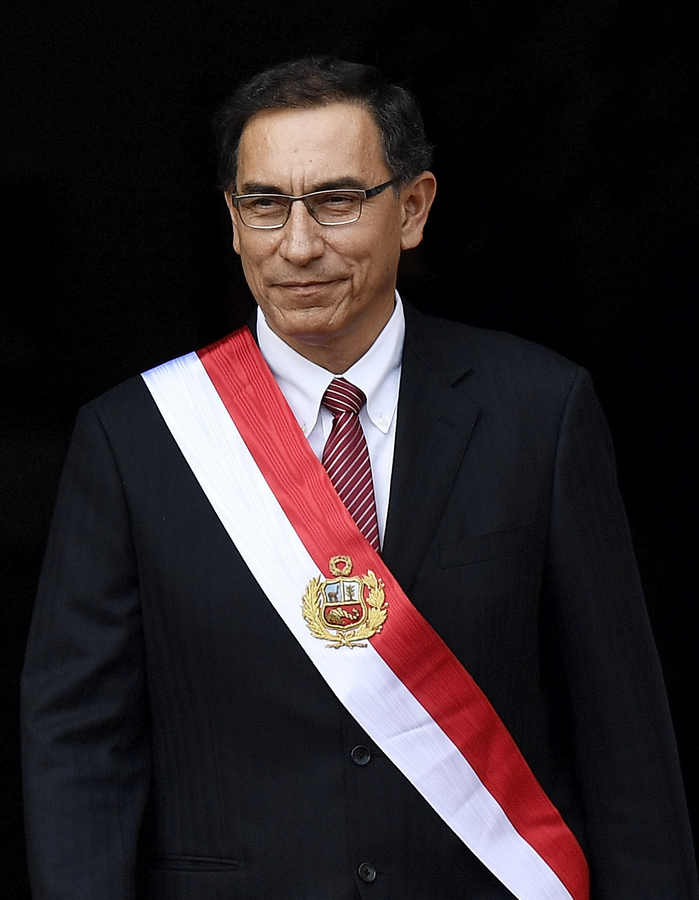
LIMA, Peru — Peruvian President Martin Vizcarra opened a subdued Summit of the Americas decrying widespread corruption and urging regional leaders to join forces in increasing transparency and boosting civil society.
Addressing Western Hemisphere leaders Friday in an auditorium where a number of seats were left notably empty, Peru’s new president said that rather than accept corruption as a deep-seated scourge impossible to eliminate, governments should adopt concrete measures that prevent it from ever taking place.
“We should build a continent where citizens are first,” Vizcarra said. “We owe it to them. We owe it to their dreams.”
In recent months corruption scandals have toppled the careers of some of Latin America’s most prominent politicians. Just one week ago, former Brazilian President Luiz Inacio Lula da Silva became the first leader in his nation’s modern history to be incarcerated as he serves out a 12-year corruption conviction.
In Peru nearly every president in the nation’s last two decades has been accused of corruption. Vizcarra himself only recently took power after former President Pedro Pablo Kuczynski resign following revelations he’d failed to disclose payments to his private consulting company from Odebrecht, the Brazilian construction giant at the centre of Latin America’s biggest graft scandal.
The scandals have sowed deepening mistrust in politicians throughout the region and eroded public faith in democratic institutions.
Organization of American States secretary general Luis Almagro told delegates the plague of corruption is not symptomatic of a flaw within democratic governance, and that nations should “fight the illness, not the system.”
After opening the summit, Vizcarra then greeted heads of state on the steps of the government palace — the same spot where Kuczynski bid farewell to his staff after resigning less than one month before.
This year’s summit is one of the least attended in recent memory, raising questions about the future of the regional gathering started in 1994 by former President Bill Clinton to assert American trade influence in the region.
U.S. Donald Trump scrapped what would have been his first visit to Latin America as president in order to manage the U.S. response to an apparent chemical weapons attack on civilians in Syria. At least seven other presidents are not participating, some in apparent acts of solidarity with Venezuela, whose invitation was withdrawn, and others to tend to domestic matters at home.
Cuban President Raul Castro, who was widely expected to show up to bid farewell to regional allies as he prepares to step down from the Cuban president in a week’s time, chose to send his foreign minister instead.
“It appears that in most of these situations, there are specific and unique reasons for heads of state not to attend,” said Matt Clausen, who is in Lima as head of the Washington Office on Latin America. “What has changed since President Trump pulled out is the calculus about the overall importance of the summit.”
It isn’t just a rising roster of no-shows that make this year’s summit of dubious importance: Presidents from three of Latin America’s most populous nations who are attending are all slated to leave office within the next 12 months.
The summit was initially started to promote representative democracy and free trade in the Americas, but in recent years both topics have become testy subjects. Instead the summit has become a stage for awkward encounters between leftist leaders and their northern counterparts.
Protesters led by soccer legend Diego Maradona burned an effigy of President George W. Bush to protest the U.S.-led invasion of Iraq at the 2005 summit in Argentina. Four years later, the late Venezuelan leader Hugo Chavez famously gave then President Barack Obama a copy of “The Open Veins of Latin America,” a book detailing the history of U.S. military interventions in the region.
Another key summit moment came in 2015 when Obama and Castro shook hands while in Panama City four months after the U.S. announced it would renew diplomatic relations with the communist island.
Things have changed dramatically since that handshake.
The Trump administration has rolled back many of Obama’s overtures to open travel and commerce with the island and withdrawn most of its diplomats in Cuba over mysterious “sonic attacks” in Havana.
Vice-President Mike Pence is expected to use the trip to promote trade and urge regional partners to further isolate Venezuela’s government. The region has been grappling with how to respond to Maduro’s increasingly autocratic rule, along with a crippling economic crisis and an exploding tide of migration.
Shortly after arriving Friday, Pence announced the U.S. would provide nearly $16 million in humanitarian aid to Venezuelans who are fleeing.